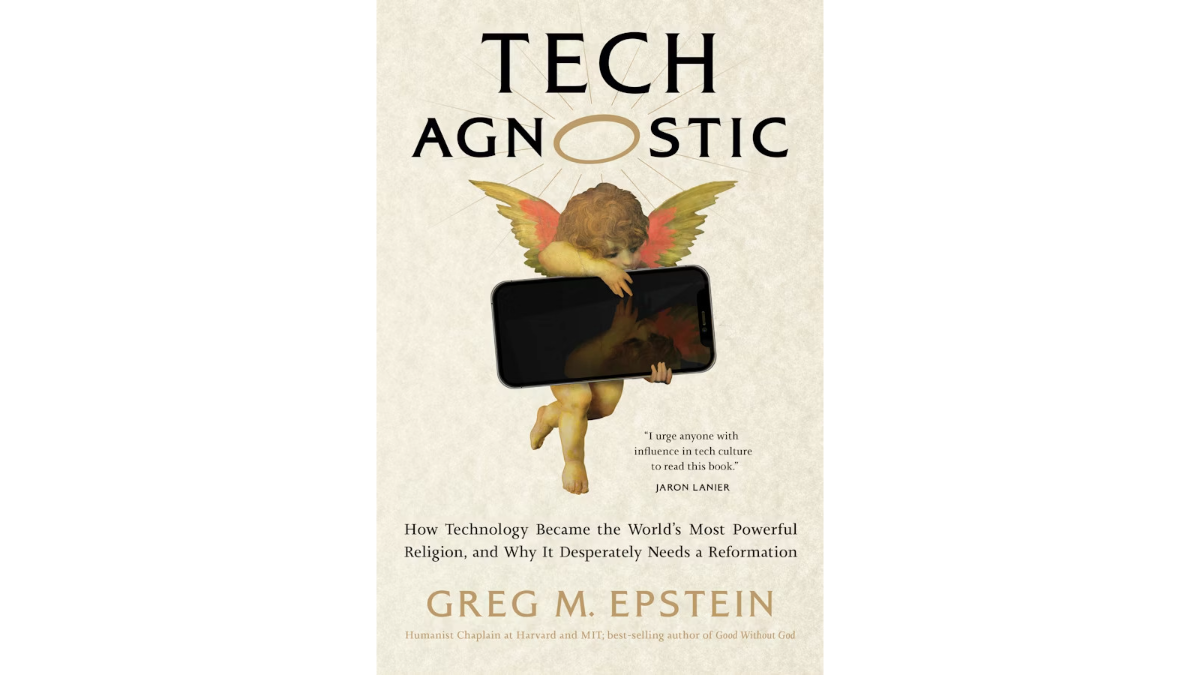Headline: Harvard Chaplain Explores Tech as the New Global Religion in Groundbreaking Book

Date: November 10, 2024
Source: Alayaran.com
Byline: Justin Hendrix
In a thought-provoking new release from MIT Press, Greg Epstein, the humanist chaplain at Harvard and MIT, delves into the profound influence of technology on society, likening it to a modern-day religion in his book, Tech Agnostic: How Technology Became the World's Most Powerful Religion, and Why It Desperately Needs a Reformation. Epstein's work has sparked significant interest, earning praise and coverage from The Guardian, The Boston Globe, and POLITICO, among others.
The Tech Religion:
Epstein's thesis posits that technology has transcended its role as mere tools or industry to become a pervasive force akin to a religion, complete with its rituals, promises of salvation, and even its own prophets and heretics. He discusses how tech leaders like Elon Musk and Sam Altman offer visions of abundance and salvation through technology, akin to religious promises of eternal life or enlightenment.
Salvation and Abundance:
The book examines the tech industry's narrative of salvation, where advancements like AI and space travel are positioned as the ultimate solutions to humanity's existential challenges. Epstein critiques this by questioning the real-world implications of such promises, suggesting that they often benefit the tech elites more than the broader populace.
The Tech Apocalypse:
Epstein introduces the concept of a tech apocalypse, already evident in places like Detroit, where technology's uneven distribution leads to surveillance and control rather than liberation. He warns of a future where technology could further exacerbate inequality and authoritarian control if left unchecked.
A Call for Reformation:
In his Tech Agnostic Manifesto, Epstein calls for a reformation in how we approach technology. He advocates for flattening tech hierarchies, recognizing tech's religious-like influence, and empowering those who question and critique the tech industry's direction. He emphasizes the importance of humanist values in shaping future tech culture, urging a balance where technology serves humanity rather than dominates it.
Public Reaction and Discussions:
The book has ignited discussions on various platforms, with Epstein engaging in dialogues about the implications of viewing technology through a religious lens. His analysis comes at a time when tech moguls are increasingly intertwining with political power, as evidenced by Elon Musk's recent involvement in high-level political discussions, signaling a shift where tech leaders are becoming the new influencers in global politics.
Conclusion:
Greg Epstein's Tech Agnostic challenges readers to rethink their relationship with technology, not as passive consumers but as critical participants in its evolution. His call for a tech reformation resonates with a growing unease about the unchecked power of tech giants and their impact on society. As technology continues to shape our world, Epstein's insights offer a timely reflection on how we can navigate its complexities with our humanistic values intact.
End Note:
For further insights, the audio of the conversation with Epstein is available on various podcast services, providing listeners with a deeper dive into the themes explored in Tech Agnostic.
